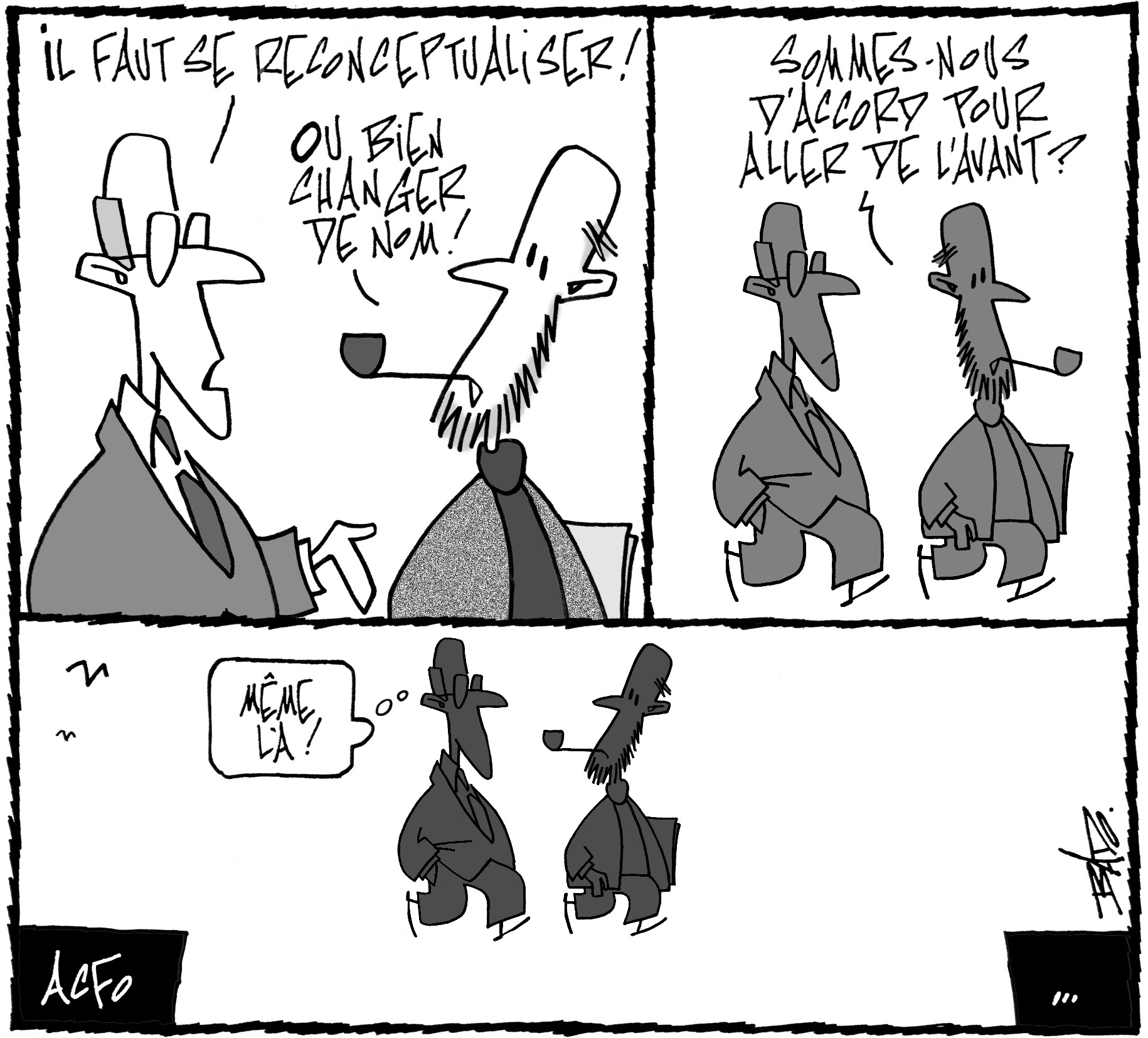The ACFO
Established in 1910 by Franco-Ontarian elites, the Association canadienne-française d’éducation de l’Ontario (ACFÉO) assumed the mandate of bringing together Franco-Ontarians and defending their rights.
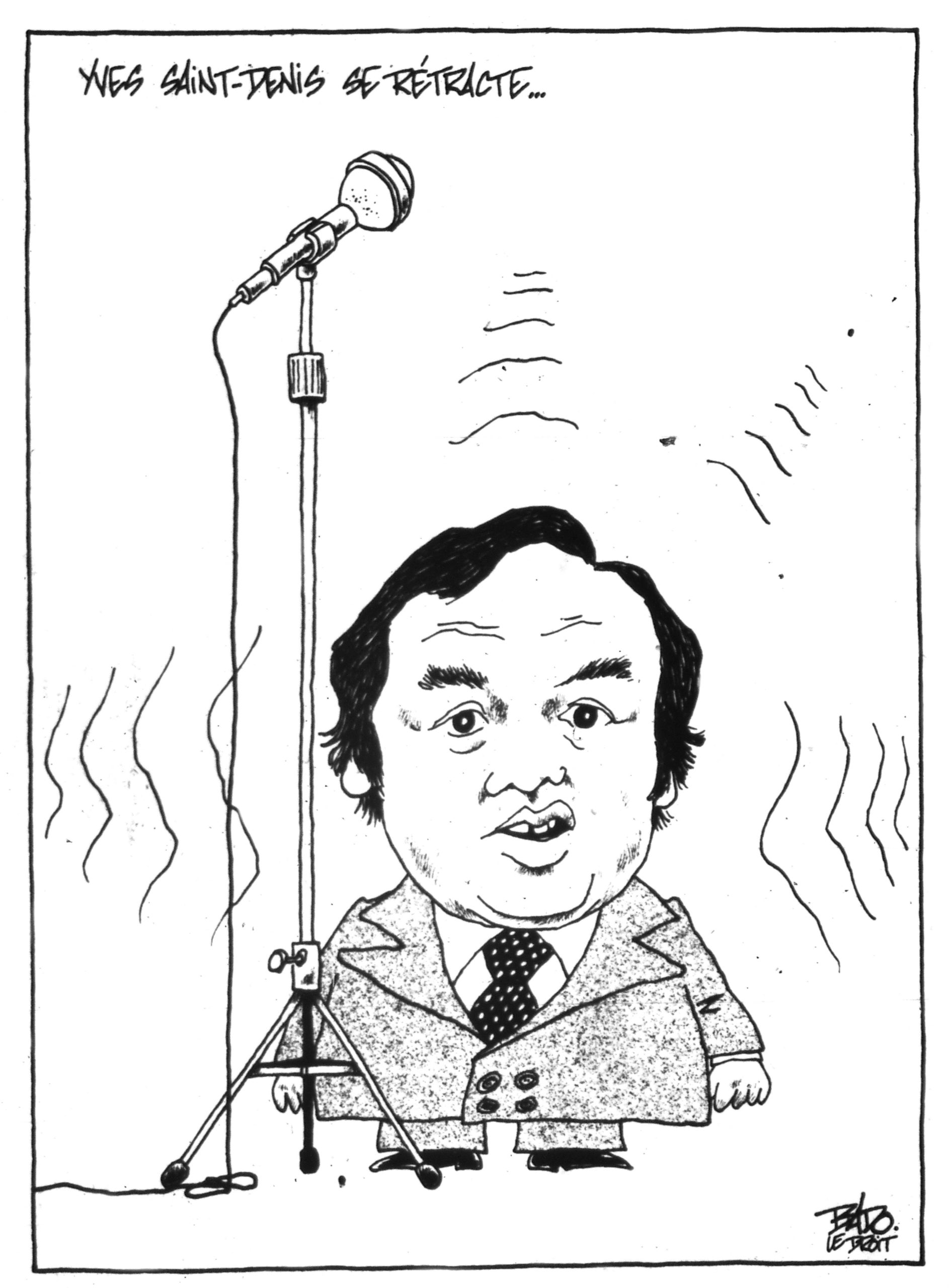
ACFO President Yves St-Denis, announces that he is not giving up fighting for official bilingualism in Ontario…after saying the exact opposite two weeks earlier.
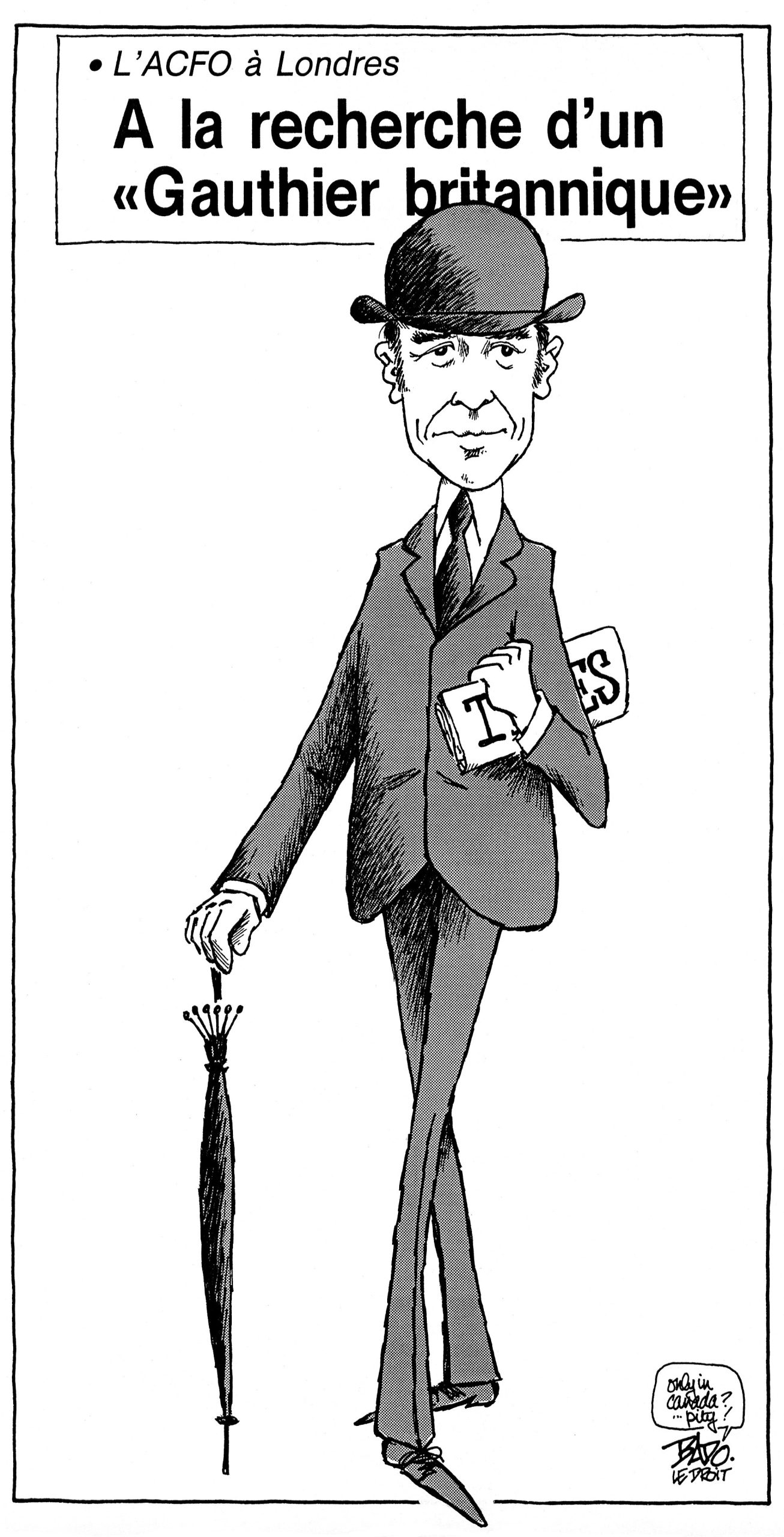
The ACFO’s mission to London seeking to explain its grievances to British parliamentarians who will be required to review Canada’s draft constitution.
Throughout the Regulation 17 crisis, it became one of the frontline organizations fighting that unfair law. During that period, it launched more than 200 court cases to try to invalidate the Regulation. It managed to bring together thousands of young students directly affected by the situation to demonstrate on Parliament Hill and try to convince federal politicians to intervene in the debate. The ACFÉO also helped establish a series of organizations defending the reality of the French presence in Ontario. Those included the Union des cultivateurs franco-ontariens, the Association de la jeunesse franco-ontarienne and the Fédération des associations de parents et instituteurs de langue française de l’Ontario.
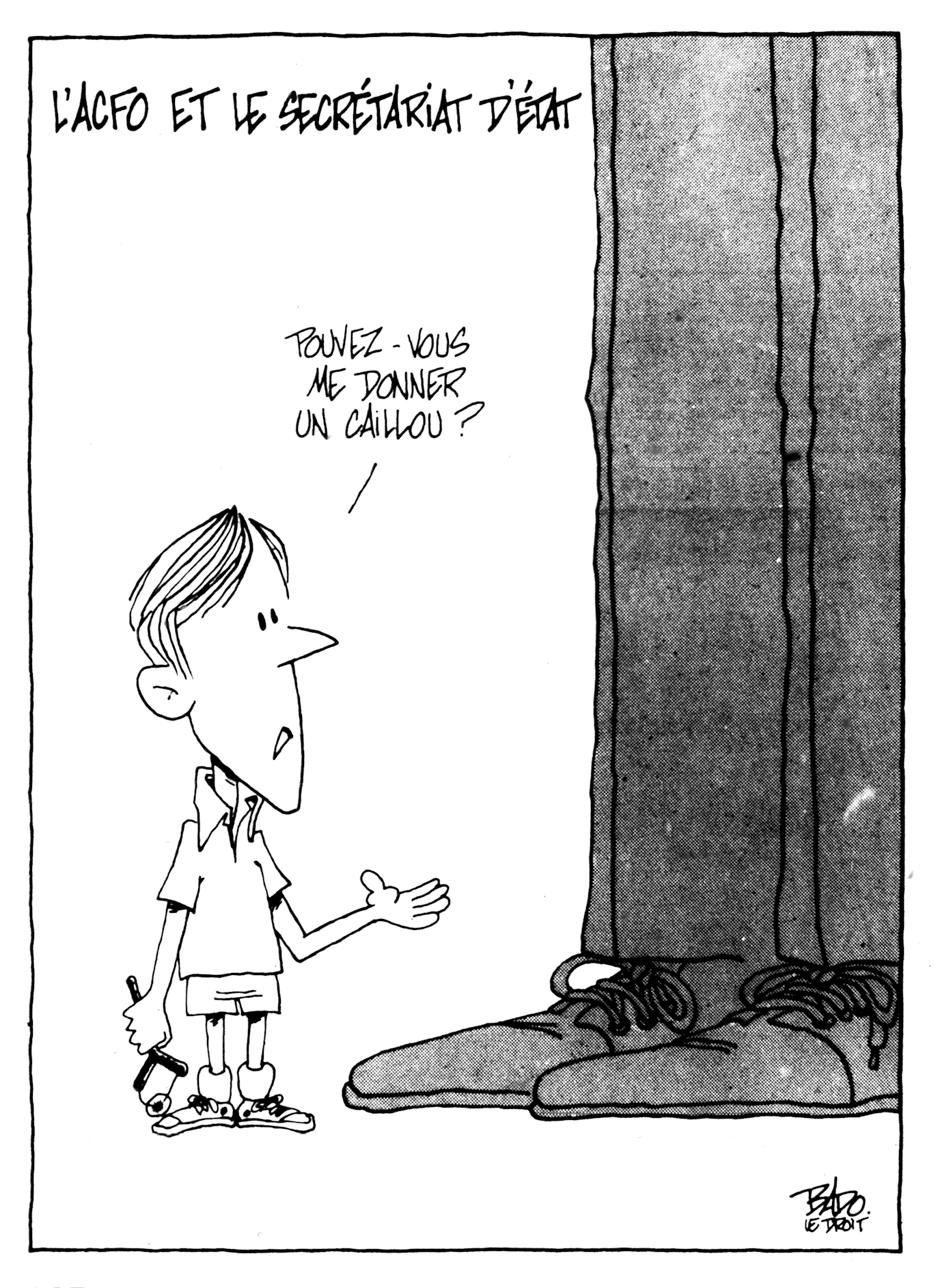
The ACFO will receive less federal funding from the Secretary of State, which will prioritize grants to regional organizations that are more directly connected to the population they serve. (One of two).

The ACFO will receive less federal funding from the Secretary of State, which will prioritize grants to regional organizations that are more directly connected to the population they serve. (Two of two).
Still committed to promoting the interests and growth of Franco-Ontarians, in 1969, it changed its mandate to become, the following year, the Association canadienne-française de l’Ontario (ACFO). Its most cherished causes extended beyond education to health, the arts and culture. Little by little, it shifted its actions towards politics, education and bilingualism. It also tried to get regions to become involved by encouraging the establishment of regional organizations with a mandate and objectives similar to those of the provincial organization.
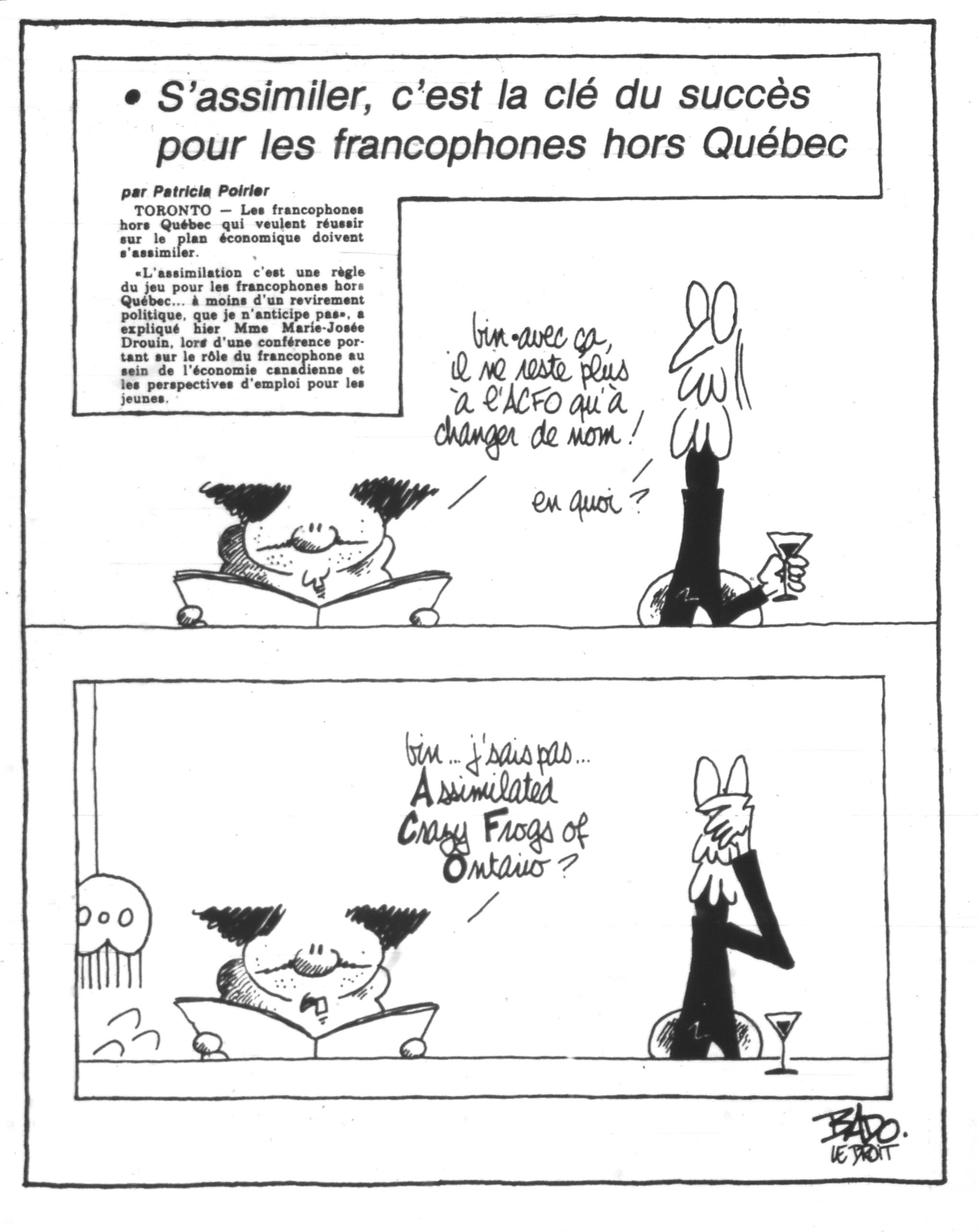
Francophones have no choice but to assimilate if they want to make it outside Quebec, according to a speaker at a conference on the place of francophones in Canada’s economy.
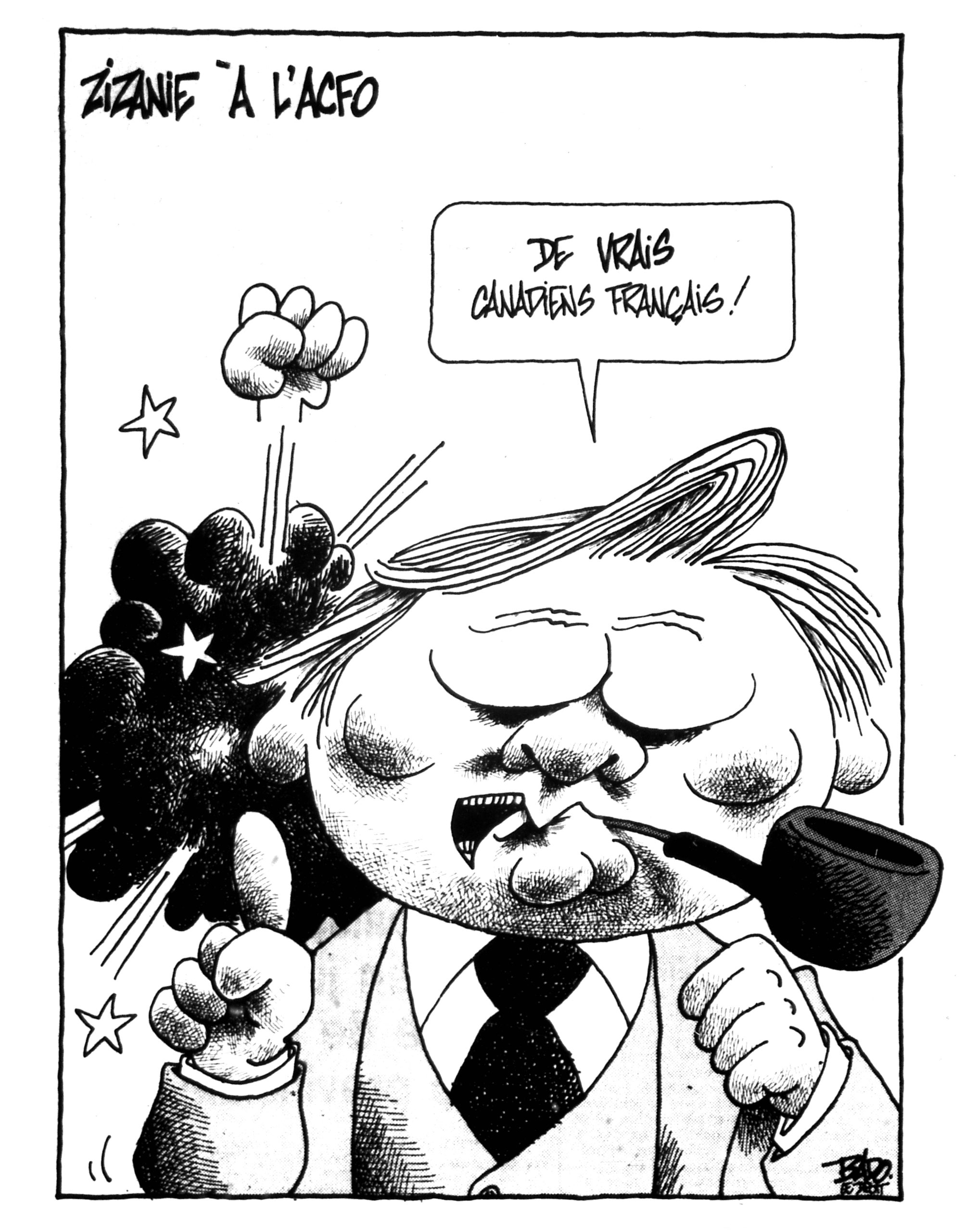
Bill Davis, Ontario Premier from 1971 to 1985 (Conservative), dealing with disagreements within the ACFO.
Those regional ACFOs would become increasingly committed to serving as agents of development and to working with organizations linked to health or immigration. In so doing, they moved away from the political militancy practiced by the provincial association. In 2003, the Department of Canadian Heritage asked the ACFO to reposition itself to better define its activities and better serve its target population.
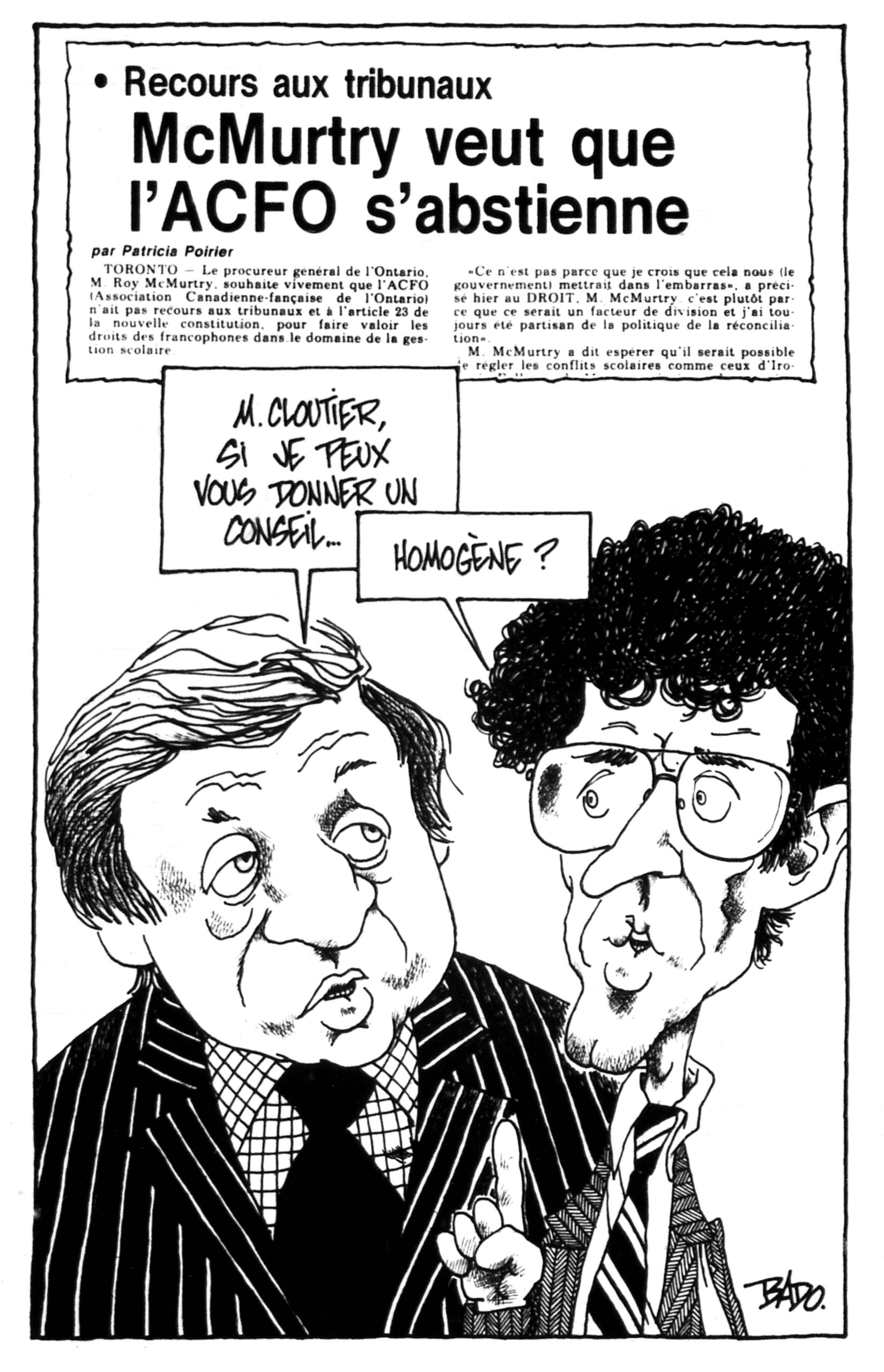
Ontario Attorney General Roy McMurtry, indicating the ACFO should not use the courts to defend the rights of francophones when it comes to school administration.
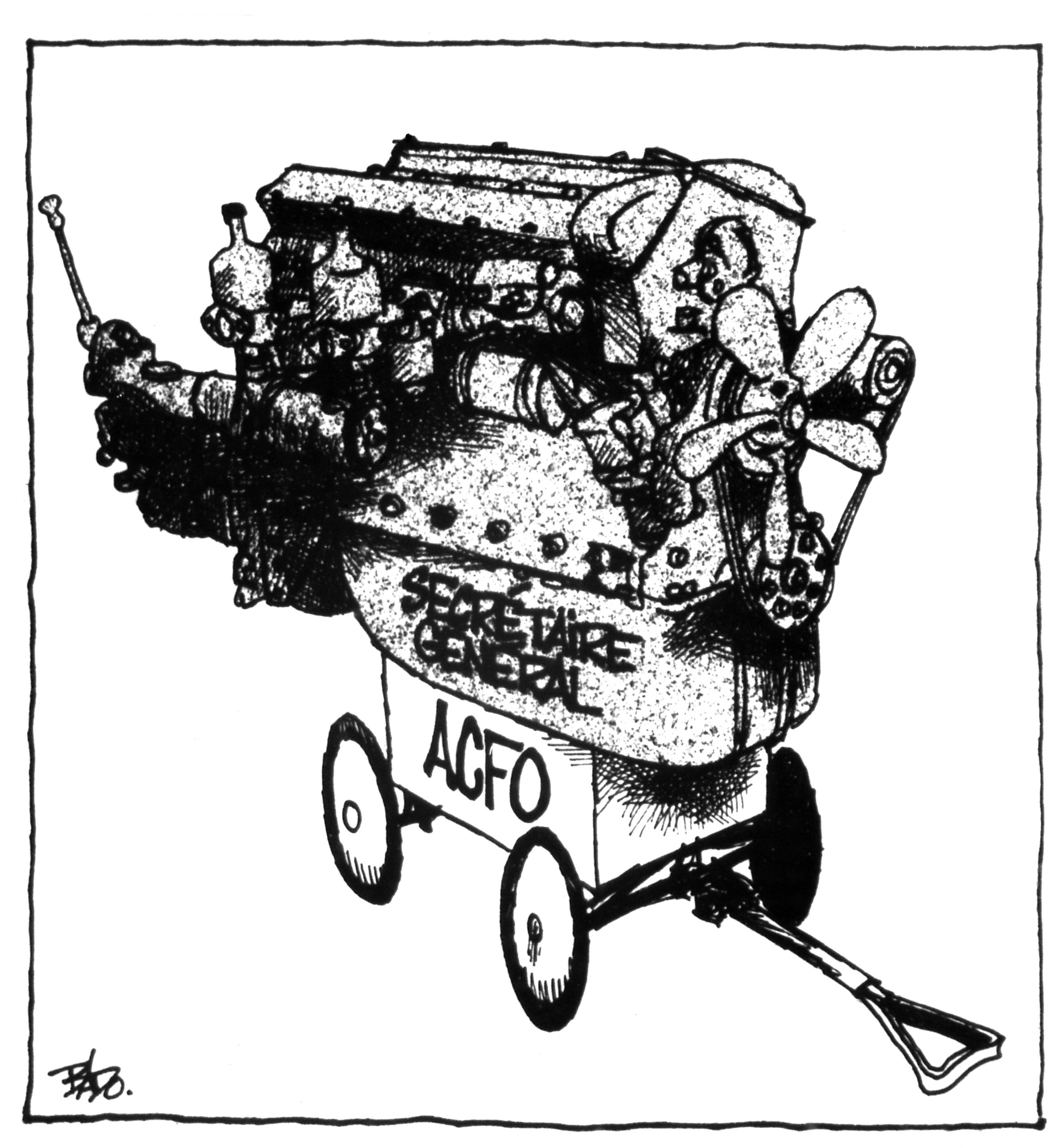
Change at the ACFO, changing the title of the secretary general to director general, and hiring a new director in Vancouver.
The Assemblée de la francophonie de l’Ontario (AFO) was established in 2006 through the merger of the provincial ACFO and the Direction Entente Canada-communauté Ontario (DECCO). The new organization continued to defend its main traditional themes. In 1980 and 1990, it added more themes, taking on inclusion and newcomers who were topping up the statistics on Ontario’s francophone community. The organization currently represents Franco-Ontarians from numerous backgrounds and participates in all of the battles that directly concern them.
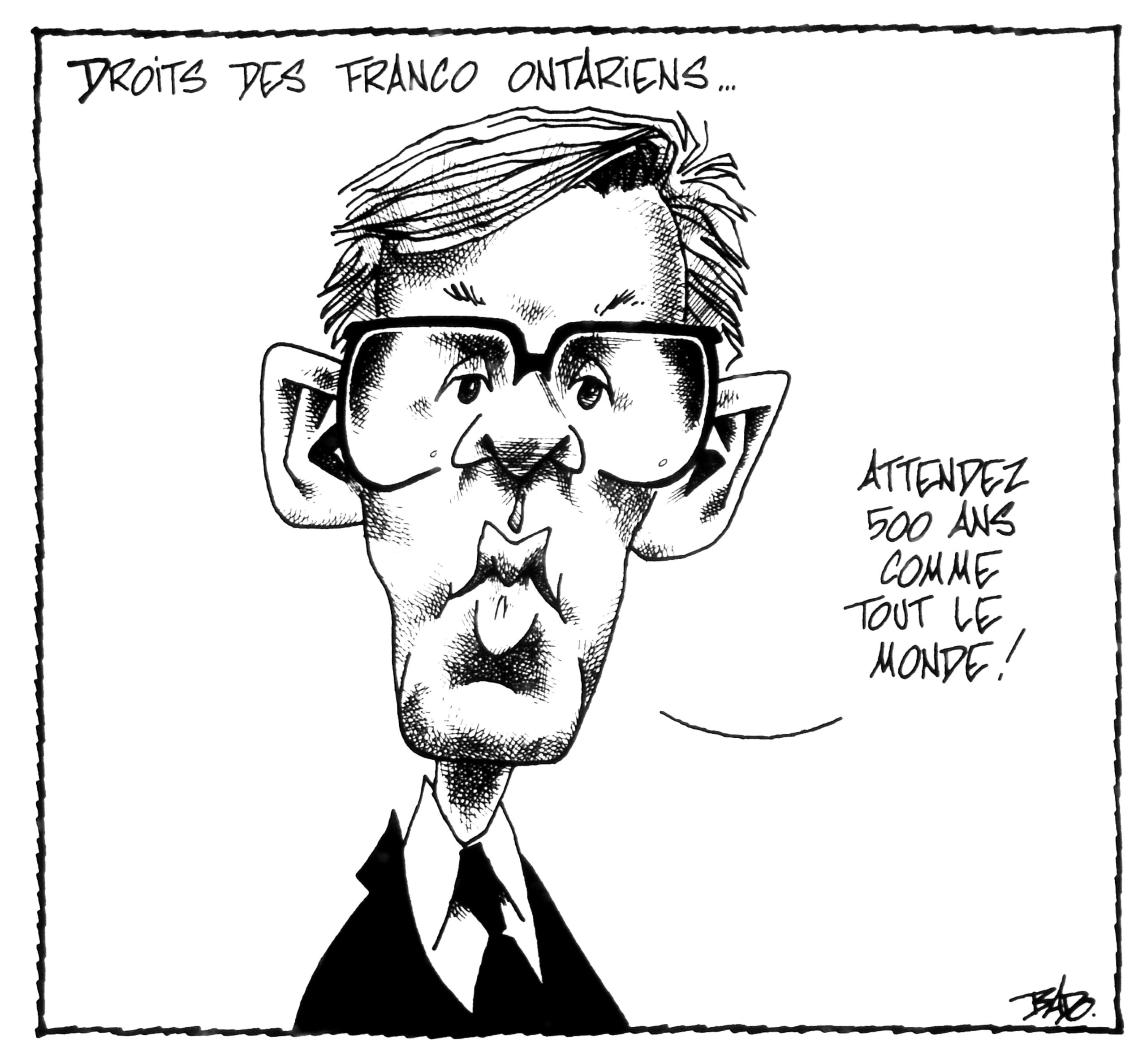
The ACFO would like to sign an agreement recognizing French as an official language in Ontario modeled after the agreement with Indigenous people. Bob Rae’s (NDP) government refused the proposal.


